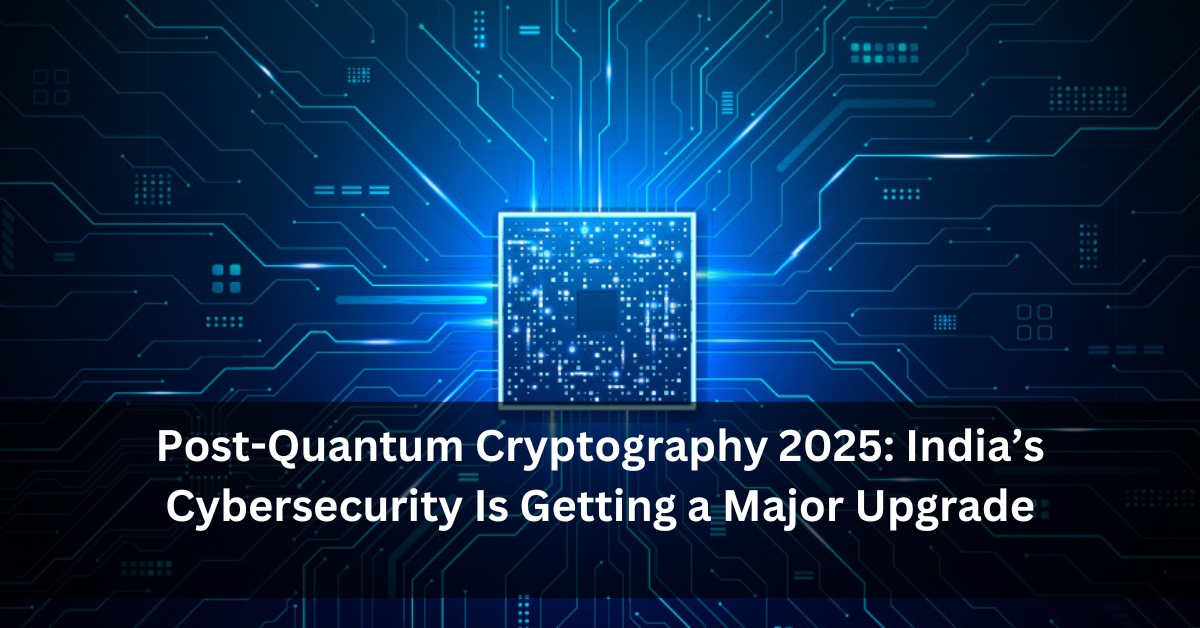Post-Quantum Cryptography 2025: India’s Cybersecurity Is Getting a Major Upgrade
In today’s digital world, most of our online safety—from bank passwords to WhatsApp chats—is protected by encryption. But with the rise of quantum computing, all that could soon change.
Big countries and tech companies are now working on a new kind of cybersecurity called Post-Quantum Cryptography (PQC). This is to make sure our data stays safe even when powerful quantum computers arrive in the near future. At Blog Lovin, we explain this big change in simple words and show how it will impact you and businesses across India.
What Is Quantum Computing and Why Is It a Threat?
Quantum computers are not like the laptops we use. They can solve very hard problems much faster than normal computers. This includes cracking current encryption, which is used to protect banking data, Aadhaar details, company secrets, and even government networks.
Experts say that a powerful enough quantum computer could break today’s strongest passwords in just minutes. That’s why countries are racing to develop quantum-safe encryption before hackers or enemy nations get there first.
What Is Post-Quantum Cryptography?
Post-Quantum Cryptography (PQC) is a new kind of encryption made to protect data even from quantum computers. PQC doesn’t need a quantum computer to work—it runs on regular computers but is designed to stop future quantum attacks.
In 2024, the U.S. government agency NIST selected some of the first PQC algorithms. These are now being tested by major companies around the world to replace older, weaker encryption.
Why Should Indian Businesses Care?
India is moving fast toward becoming a digital-first economy. From UPI payments to online tax filing, almost everything important is done digitally. This means Indian companies, banks, hospitals, and even startups are sitting on a goldmine of sensitive data.
If quantum computers become powerful before we update our security systems, India could face serious risks like:
- Leaked customer information
- Hacked government records
- Tampered financial data
- Major internet outages
That’s why preparing now—not later—is key.
India’s Response: National Quantum Mission and Cyber Readiness
India launched the National Quantum Mission (NQM) in 2023 with a budget of over ₹6,000 crore. Its goal is to make India a leader in quantum science, including secure communication, quantum sensors, and post-quantum cybersecurity.
In April 2025, the Indian government released a report urging organizations to start identifying critical systems and begin transitioning to PQC.
A recent study also showed that many Indian companies, especially in finance and IT, are not ready for the quantum threat. This means there is still a long way to go.
Global Tech Companies Are Already Adapting
Leading global firms are not waiting:
- Microsoft has rolled out PQC support on Windows and Linux, helping developers upgrade security tools.
- NordVPN now offers post-quantum encryption across all its apps, keeping users’ internet activity safer.
- Cloudflare, a major internet security firm, is updating its tools to use PQC by mid-2025.
These actions show how serious and real the need for PQC is becoming.
What Indian Businesses Can Do Now
Every business in India—small or large—can start taking steps to stay secure:
1. Start an Audit
Check where your most sensitive data lives. Is it your payment system? Customer database? Email?
2. Talk to Cyber Experts
Get help from companies that offer encryption and data protection. Many Indian cybersecurity startups are now offering PQC services.
3. Train Your IT Teams
Your employees don’t need to be quantum scientists, but basic training in PQC and encryption can go a long way.
4. Stay Updated
Follow updates from trusted websites like NIST, CERT-IN, and yes, Blog Lovin, for simple breakdowns of complex tech.
Post-Quantum Cryptography in Daily Life
You may think PQC is only for tech giants, but it affects everyday life too:
- Your WhatsApp chats could be vulnerable someday.
- Your Aadhaar info might need better encryption.
- Your digital wallet needs to stay one step ahead of hackers.
In the next 5 years, everything from school records to hospital systems will be moving to quantum-safe security.
Final Thoughts: Cybersecurity Is Changing—Let’s Be Ready
The quantum era is not far away. While these machines are still in development, hackers may already be saving today’s encrypted data to crack it later when quantum power is available.
That’s why Post-Quantum Cryptography is not a buzzword—it’s a necessary move to keep our digital future safe.
India has the talent, the tech brains, and the government support to lead this change. But businesses and everyday users must also act now. PQC is not just about complex codes—it’s about protecting your identity, money, and information.
To stay informed on technology, business updates, and cybersecurity made simple, bookmark Blog Lovin—your trusted Indian news source for big changes explained in small words.







